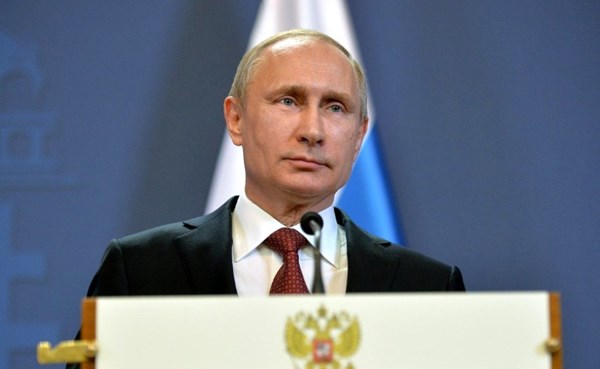Putin changes Russian military doctrine allowing Russia to initiate nuclear war
Russian President Vladimir Putin signed a decree approving the "Basics of Russia's State Policy on Nuclear Deterrence."
The document, published on the legal information website of the Russian Government, expands the list of conditions for the use of nuclear forces.
According to the military doctrine of 2014, the Russian president could press the "nuclear button” in case of a threat of nuclear and other weapons, as well as aggression using conventional armed forces, if the "very existence of the state" is threatened.
The new document de facto buries the principle of "counter-response" which Moscow has had as its main principle since Soviet times.
According to the "Basics of The State Policy of Nuclear Deterrence," Russia can launch nuclear missiles without a direct threat of a strike on its territory - if the enemy’s attack "has an impact of critical state or military facilities."
The document does not explain the term "impact". As for the facilities, it is an infrastructure that will "lead to the disruption of the nuclear force's response," the document says.
In addition, the list of conditions for retaliation is changing. If earlier it was only about the "use" of nuclear or other weapons of mass destruction by the enemy, now nuclear missiles can be launched after "receiving reliable information about the launch of ballistic missiles" in the direction of Russia.
Russia can also launch nuclear strikes in response to an attack against its "allies," according to the doctrine. An attack of both nuclear and other "weapons of mass destruction" may be considered a condition for the nuclear strike.
The only person deciding whether to use nuclear weapons, according to the "Basics of State Policy," is the president, the document says.
According to the doctrine, Russia can target the countries which either have or do not have nuclear weapons if they consider Russia as a potential adversary, or are part of the opposing military blocs and have "significant combat capabilities of the general forces".
Moscow considers the build-up of nuclear forces "in neighboring territories", the deployment of missile defense systems, cruise missiles, drones, hypersonic weapons in countries that consider Russia as a potential threat.
Also, among the threats are the deployment of missile defense and strike systems in space, the "uncontrolled proliferation" of nuclear weapons and their appearance in the territory of previously non-nuclear countries.
Russia, the doctrine states, views nuclear weapons "exclusively as a deterrent which is to be used in extreme and forced circumstances" and "makes all necessary efforts" to prevent military conflicts, including nuclear ones.
At the same time, "guaranteed deterrence of a potential adversary from aggression against Russia and/or its allies is among the highest state priorities" and "is provided by the entire body of military power, including nuclear weapons," the document stresses.
